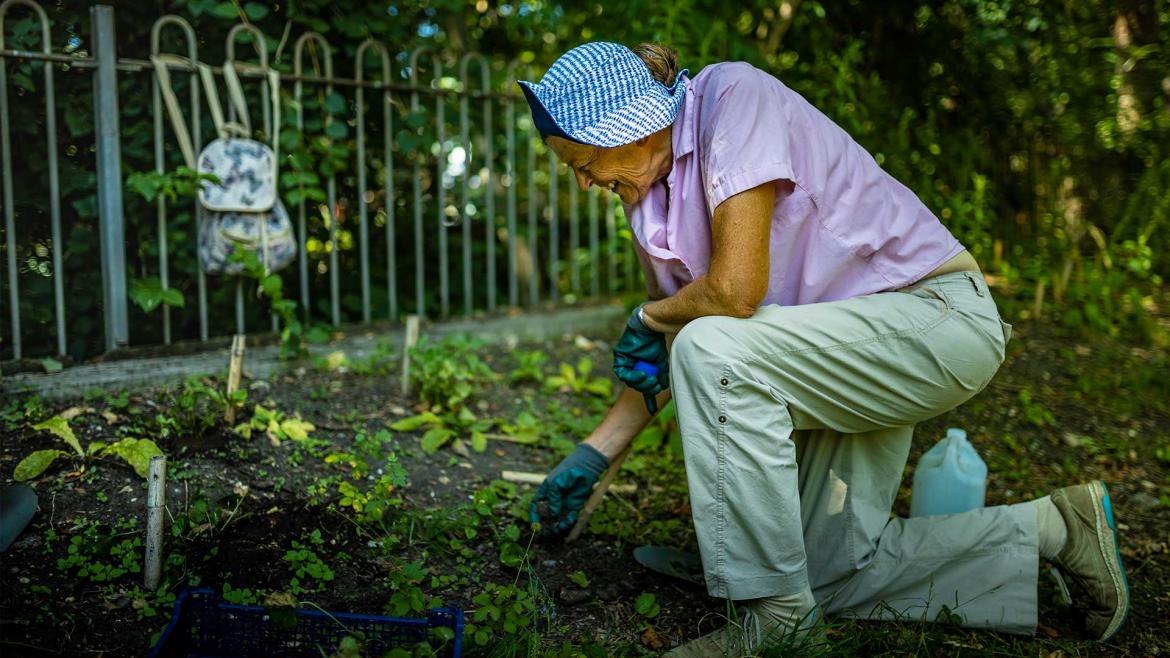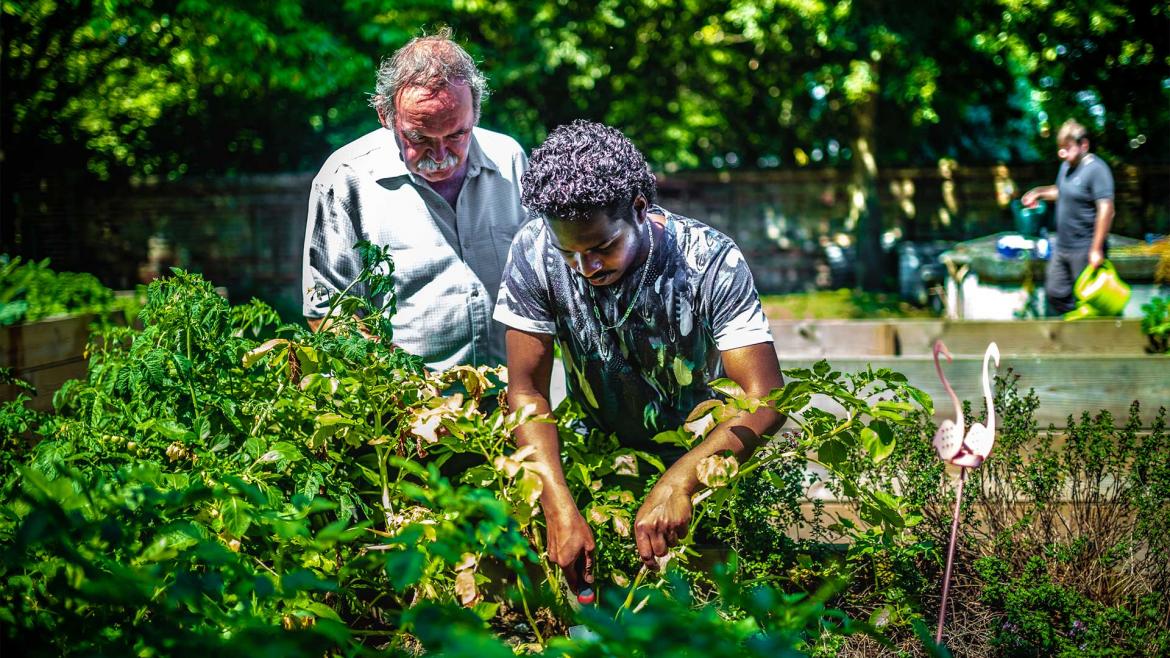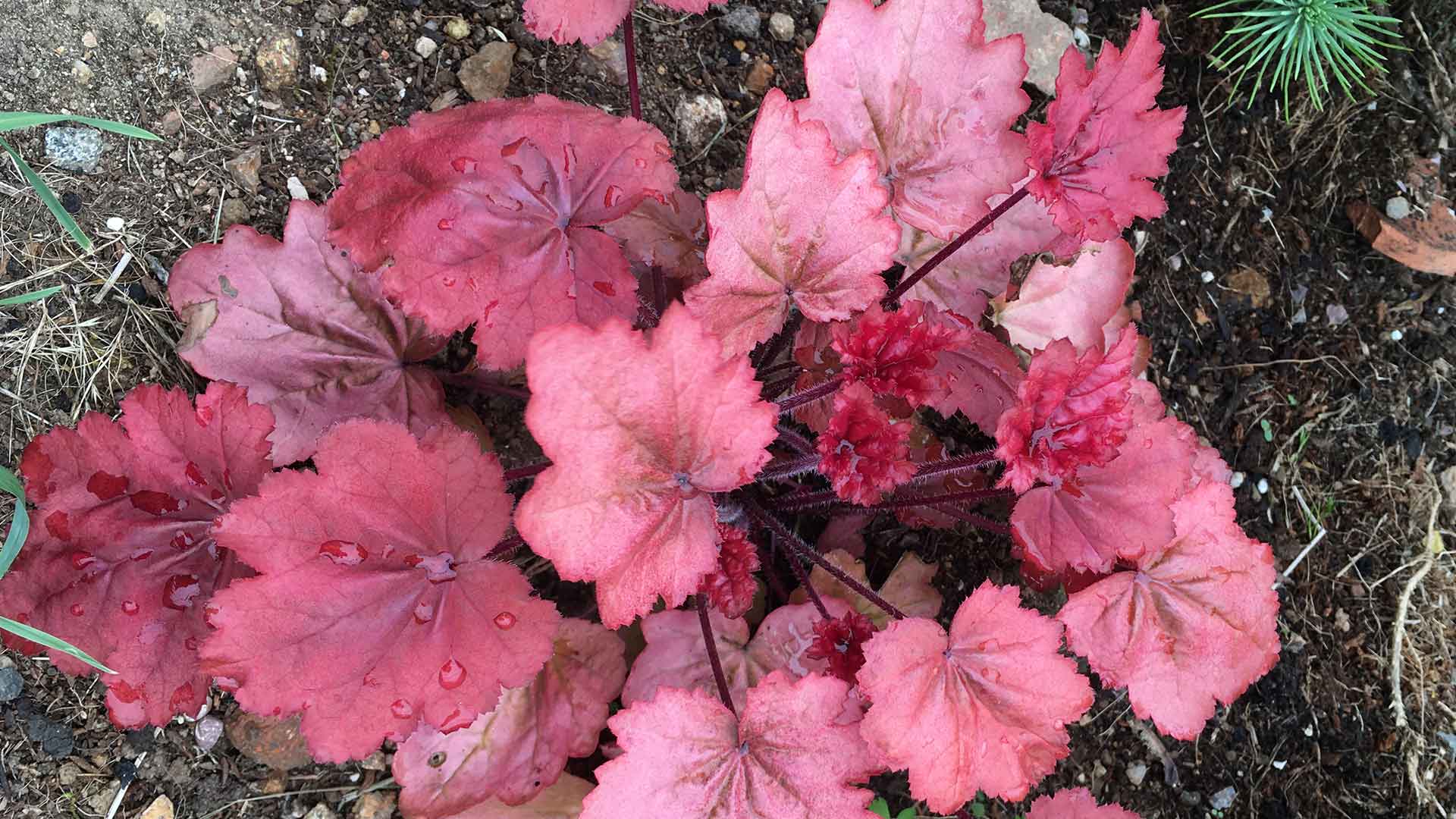Author: Bible Society, 30 October 2020

If you enjoy gardening, or are just dipping your toe into it, you’ll know the real pleasures that it can bring, writes Hazel Southam. Creating a community garden with like-minded people, can be transformational, for individuals, the neighbourhood, the land, and wildlife.
In many communities (not just urban ones) access to green space can be limited. By creating a community garden, you’ll be providing a green space that anyone in the area can use. You may never know the individual benefits, but they’ll be real.
In 2010 community groups, Hackney Council and J&L Gibbons Architects created Dalston Curve Gardens in Dalston, Hackney. This is one of the most densely-populated boroughs in the capital. The gardens were built on a disused railway line.
Garden director, Marie Murray, says, ‘Green space is really important in a busy built-up area. So many people come here just to relax. We watch people come in and step into this green different world, and we can see their shoulders just relax, as they step away from the concrete.’
During the pandemic, many more of us have been growing our own food. Growing your own fruit and vegetables can be rewarding, and delicious. But doing this together can make a profound difference to a community.
In Cambridge, a team of 110 volunteers have transformed a two-acre site, to create a market garden to help stock seven local community food hubs.
Gavin Shelton, co-founder of CoFarm Cambridge, is now aiming to establish a community farm in every local authority in the UK by 2030. He says, ‘Something has gone seriously wrong in society if people cannot afford this food. We’ve focused on growing as much organic food as we can and for this year [2020] giving it all away for free.’
Scientists have found that spending just two hours a week outdoors, in nature, is linked to better health and wellbeing. So, perhaps it’s no surprise that there is now a rise in ‘green prescriptions’, where doctors incorporate prescribing time outdoors, including in community gardens, as part of the treatment for patients, especially those experiencing anxiety, depression or loneliness.
The Growing Health Scheme is aimed at elderly people who want to be more physically active. Dr James Cavanagh, from the Brook Green Medical Centre in Hammersmith, has begun to refer older patients to it. He says, ‘We have a lot of isolated people in our community and this is a really positive way of slowly re-integrating them into society.’

‘One is nearer God’s heart in a garden than anywhere else on earth,’ wrote the poet, Dorothy Frances Gurney. Whatever your beliefs, taking part in a community garden will be a spiritual experience, as it will take you beyond yourself, open you to new experiences, and connect you with creation, and its creator. The author of To Garden with God, Christine Sine, says, ‘For me personally, the garden is a constant unfolding of new revelations about God. Fostering community and generosity are probably the most important kingdom values I have learned from involvement in community gardens.’
At Bible Society, we hope that creating a garden themed on Psalm 23 will enable any gardener, whatever their spirituality, to connect with this amazing psalm and its restorative, sustaining message: words for a pandemic.
‘Wildlife in Britain is under threat,’ says the Royal Horticultural Society. It encourages gardeners to ‘create a haven’ for wildlife, and reports that community gardens can be a contributor to this.
‘Any outdoor space can be nurtured to better support and attract wildlife – be it a community garden, a busy estate, a public thoroughfare, allotment or at home in the family garden,’ it says. ‘Creating the right habitat for species to find shelter and food is key. Lawns, water features, woodpiles, compost heaps, trees and hedges can all provide a perfect place for wildlife to live.’
During the pandemic, we’ve spent a great deal of time apart. Over the coming years, part of our recovery from this time will be spending time together. What better way than to create a beautiful community space, a place for reflection, a place that all can share? However you approach creating a Psalm 23-inspired garden, it will be bigger than the sum of its parts. Lives will be touched. Wildlife will have the chance to flourish. And everyone has the chance to reflect on this beautiful psalm.
Here’s the good news. We’ve created simple-to-use resources to help you, and your community create a Psalm 23-inspired garden. There are videos and downloadable how-to guides, reflections and even an assembly, if you do this in your local school yard. Sign up for the resources now.
Share this:

Garden ‘brings psalm to life’ at Winchester Hospice

Children love their school’s Psalm 23 garden

Sea-front church garden to a place of 'inspiration and restoration'